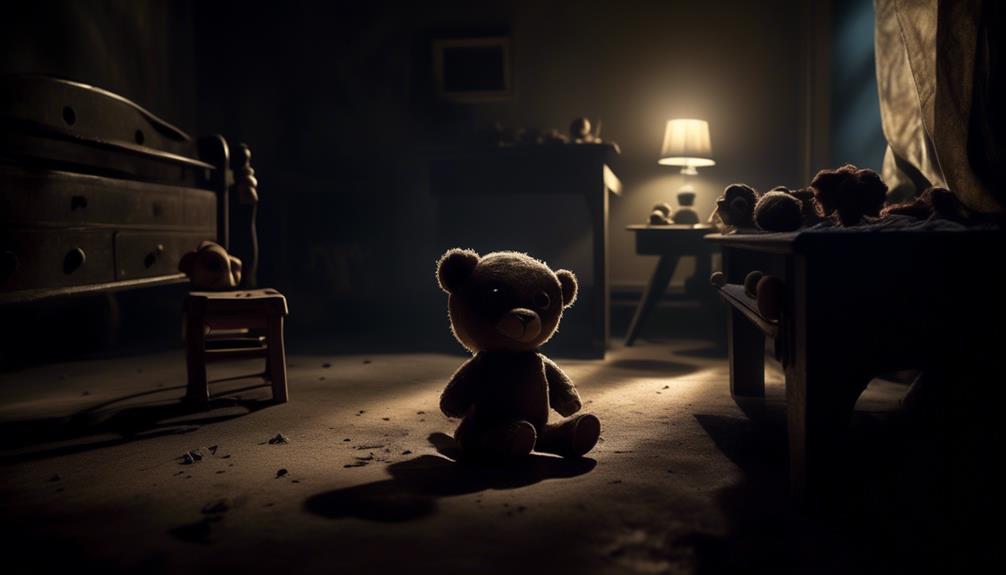Healing from a childhood with a father who has BPD is possible when you understand the disorder and avoid blame. Focus on setting healthy boundaries to protect your emotional well-being and practice self-compassion as you process complex feelings like anger or sadness. Reframing the experience helps you reclaim your identity and build healthier relationships. Keep exploring how you can support your healing journey and create stability in your life.
Key Takeaways
- Recognize that your father’s BPD behaviors are rooted in his disorder, not personal failings, fostering compassion over blame.
- Establish healthy boundaries to protect your emotional well-being and prevent re-traumatization.
- Engage in therapy or support groups to process complex emotions and develop coping strategies.
- Reframe past experiences to understand their impact without self-blame, promoting healing and self-compassion.
- Focus on building a stable, authentic life centered on healthy relationships and emotional security.

Growing up with a father who has Borderline Personality Disorder (BPD) can profoundly shape your emotional life and sense of stability. You might have experienced intense fluctuations in his mood, unpredictable outbursts, or moments of deep affection that suddenly turned into distance. These patterns often leave you feeling confused, anxious, or even responsible for his emotions. You may have learned early on to walk on eggshells, trying to anticipate his reactions to avoid conflict or emotional pain. As a result, your childhood might have been marked by a constant need to manage or soothe his feelings, sometimes at the expense of your own needs and boundaries. This environment can create a deep sense of emotional insecurity that persists into adulthood.
Growing up with a father with BPD often leads to emotional insecurity and constant boundary testing.
Despite these early challenges, healing is possible. One essential step is recognizing that his BPD is a mental health condition, not a reflection of your worth or actions. Blaming yourself, or even him, only prolongs pain and keeps you stuck in patterns of guilt or resentment. Instead, focus on understanding that his behaviors stem from his disorder, which he struggles to control. This shift in perspective helps you foster compassion, not just for him but for yourself, acknowledging how much you’ve endured and how far you’ve come.
As an adult, you might find that setting boundaries is vital to your emotional well-being. It’s okay to protect your energy by limiting interactions that drain you or trigger old wounds. Establishing boundaries doesn’t mean you’re abandoning him; it means you’re prioritizing your mental health. You also need to acknowledge your feelings—anger, sadness, confusion—and give yourself permission to experience them without judgment. Journaling, therapy, or support groups can offer safe spaces to process these complex emotions and gain clarity.
Healing involves rewiring your understanding of relationships and learning how to nurture your emotional health. Therapy, especially approaches like dialectical behavior therapy (DBT), can equip you with tools to manage emotional triggers, build resilience, and develop healthier relationships. Remember, healing is not about blaming or fixing him but about reclaiming your peace and identity. You’re not alone in this journey, and it’s okay to seek support. Over time, you can create a life rooted in stability, self-compassion, and genuine connection—free from the shadows of past chaos.
Frequently Asked Questions
How Can I Rebuild Trust After Childhood Emotional Neglect?
You can rebuild trust by setting clear boundaries, practicing self-compassion, and acknowledging your feelings. Focus on developing healthy relationships with people who respect and support you. Be patient with yourself as trust takes time to re-establish. Seek therapy or support groups to explore your experiences and learn healing strategies. Remember, small steps forward are progress, and trusting again is a gradual process that deserves kindness and persistence.
What Are Effective Coping Strategies for Ongoing Bpd-Related Stress?
You can manage ongoing BPD-related stress by practicing mindfulness to stay present and reduce anxiety. Establish healthy boundaries to protect your emotional well-being, and develop a support system of trusted friends or therapists. Regular self-care, like exercise or journaling, helps release tension. When stress spikes, use grounding techniques or deep breathing to regain control. Remember, consistency in these strategies builds resilience and fosters emotional stability over time.
Is It Possible to Have a Healthy Relationship With a BPD Father?
Yes, it’s possible to have a healthy relationship with a BPD father, but it requires boundaries, communication, and self-awareness. You should prioritize your emotional well-being, set clear limits, and understand that change takes time. Focus on accepting your father’s limitations while maintaining your own mental health. Seek therapy or support groups to navigate challenges. Remember, fostering respect and understanding helps build a more stable, supportive relationship.
How Do I Recognize and Challenge My Own Emotional Triggers?
Think of your emotional triggers as fire alarms; they signal you when something’s off. To recognize them, pay close attention to your body and feelings—notice when you feel sudden anger, sadness, or anxiety. Challenge these triggers by questioning their validity and reframing your thoughts. Practice deep breathing or grounding techniques to stay present. Over time, you’ll learn to listen to your alarms without letting them override your peace.
When Should I Seek Professional Help for Family-Related Trauma?
You should seek professional help when your family-related trauma causes persistent emotional distress, impacts your daily functioning, or feels overwhelming to manage alone. If triggers lead to intense anger, sadness, or anxiety, or if communication and relationships suffer, it’s time to consult a therapist or counselor. Professional support provides tools to process your experiences healthily and develop coping strategies, helping you heal and regain emotional stability.
Conclusion
You might believe that healing depends solely on cutting ties, but research suggests that understanding your father’s BPD can foster compassion and personal growth. By recognizing his struggles, you break the cycle of blame and start healing. It’s not about excusing harmful behaviors, but about reclaiming your peace. Embracing this truth empowers you to transform pain into strength, proving that compassion and awareness can lead to genuine healing, even without full reconciliation.









